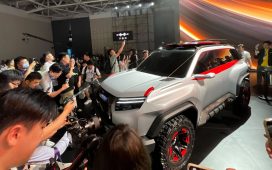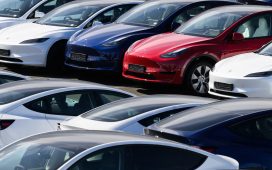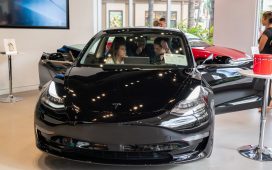Over the past 10 months, Apple has outfitted its latest iPad Pro and iPhone 12 with lidar sensors that enhance the camera capabilities in both devices. Even though the additions have nothing to do with the company’s secretive self-driving vehicle program, the moves nonetheless elicited cheers from one Israeli auto-tech startup.
Opsys Tech has spent the past five years developing a particular kind of lidar for use in driver-assist and self-driving systems called VCSEL, which rhymes with ‘pixel.’ The company’s founders are convinced Vertical Cavity Scanning Emitting Lasers offer advantages over conventional lidar, because they allow more emitters to be packaged on smaller chips and use less power overall.
When Apple started using the same type of lidar, Opsys Tech counted another key advantage — it can further compete on cost.
“By the time Apple finished saying to the world ‘I need VCSELs for my phone,’ everyone was building capacity around the world to supply it,” said Opsys Tech Executive Chairman Eitan Gertel. “Suddenly, the cost went down an order of magnitude. Instead of a dollar or two, it costs pennies. That enables us to use it in automotive, low-cost, high-performance technology.”
Opsys Tech has raised $31 million to date, including an undisclosed investment from Hyundai Motor Corp. The company started delivering its second-generation lidar to Chinese customers in December, he said.
Lidar is used to help cars know precisely where they are in the universe and detect obstacles in their paths. Opsys is not the only provider that’s gravitated toward using VCSEL lasers in its lidar sensors. IBEO and Ouster are two other well-established lidar companies that have incorporated them into their products, according to a November report from Guidehouse Insights.
The report echoed Gertel, noting Apple’s appetite will provide volume in the tens of millions and be a “major contributor” to cost reductions. Guidehouse said VCSEL has limited detection range, but that it is highly accurate, and optimal for use in driver-assist functions such as automated emergency braking. Performance is expected to improve with Apple’s entry.








